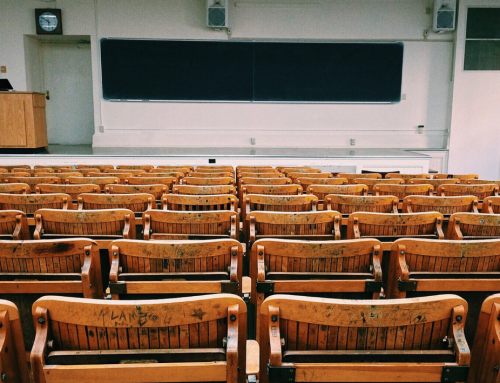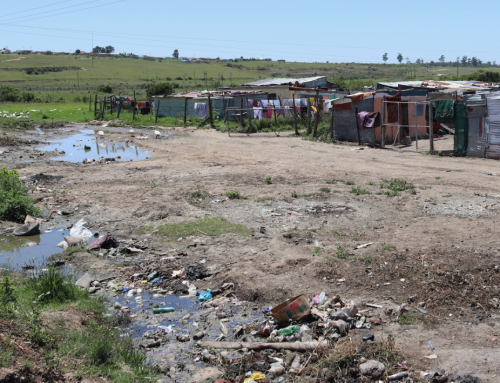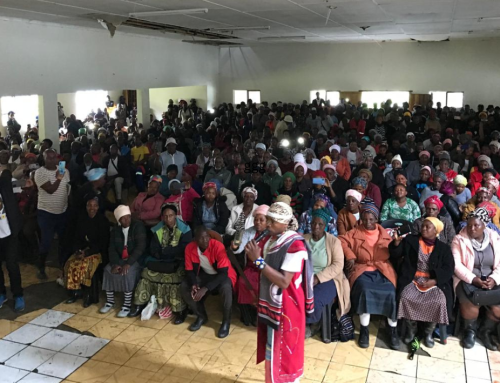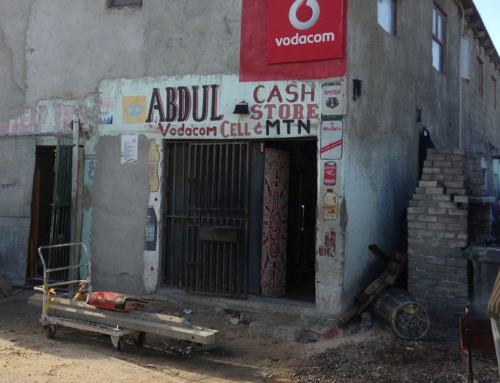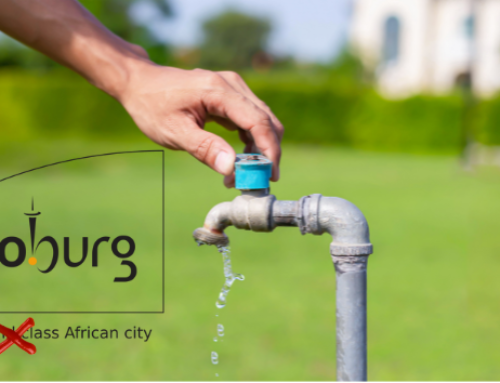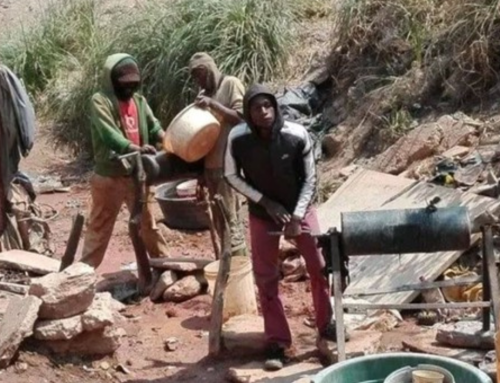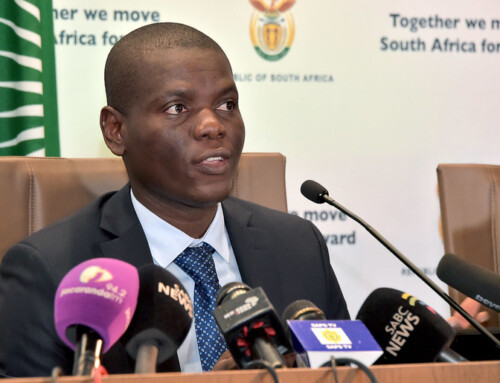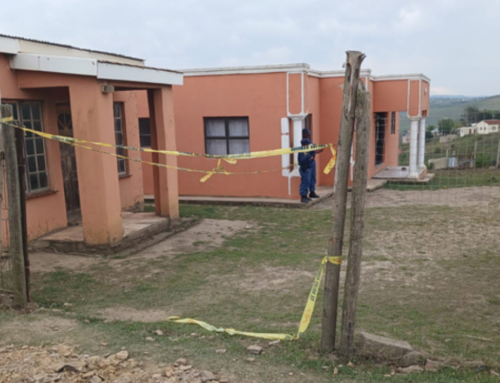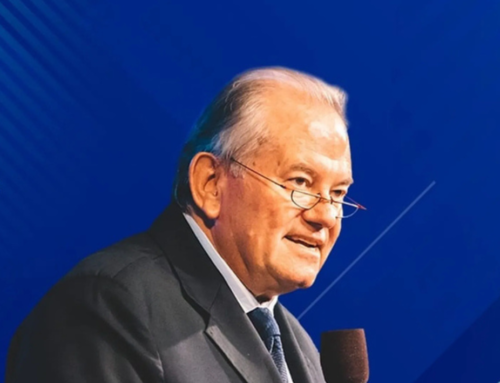 Speaking notes for Mr Bantu Holomisa, MP and President of the United Democratic Movement at the Release of the UDM’s Ten Point Plan for the Eastern Cape10 May 2024 at the Gompo Hall in Duncan Village, East London
Speaking notes for Mr Bantu Holomisa, MP and President of the United Democratic Movement at the Release of the UDM’s Ten Point Plan for the Eastern Cape10 May 2024 at the Gompo Hall in Duncan Village, East London
Check against delivery
• UDM Deputy President, Nqabayomzi Kwankwa
• Provincial Leadership of the UDM in the Eastern Cape
• Our hosts, the Regional Leadership of the UDM in the Buffalo City
• Public Representatives of the Party
• Representatives of the Media
• Members and supporters of the UDM
• People of East London and Duncan Village in particular
• Ladies and gentlemen
1. Welcome
Welcome, everyone, on behalf of the United Democratic Movement (UDM) to this press conference where we’ll reveal and discuss our Ten Point Plan for the Eastern Cape.
Thank you for being here today; we appreciate you choosing to spend your time with us over other activities.
2. Introduction
We are here today because of the clarion call from the people of this province, supported by the structures of the UDM in the Eastern Cape, who said I must make a stand on their behalf.
I was given the thumbs up to run for Eastern Cape Premier based on my history of running a clean government which promoted tolerance amongst political parties.
They said my proven track record will restore this province to the Home of the Legends, it once was.
This is Home of Legends that has been betrayed by the Comrades in Corruption for thirty years.
Where infrastructure has collapsed and there are more potholes than tar surface on the roads. Government buildings are falling apart because they are not maintained.
Houses are shoddily built or left incomplete. The former Transkei and Ciskei agriculture and irrigation schemes have gone to waste.
The border industries of old, that were closed down, was a case of throwing the baby away with the bathwater.3.
The jobs that were created closer to the people were all lost, because of short-sightedness and greed.
The ultimate betrayal of the Home of Legends, was observed with the blatant theft of the funds that was supposed to cover Madiba’s funeral. These people have no shame.
Say what you will, but KD Matanzima stood for the empowerment of black people in the form of property ownership in the Transkei. Today, those areas are either owned by or rented to Pakistanis who send all their earnings home. We even doubt if they pay taxes.
Not a week goes by, that we don’t have service delivery protests somewhere in the country, that invariably escalate into violence and property destruction. The African National Congress (ANC) is to blame for this phenomenon.
Corruption up to the highest levels of government, a declining economy, crime and lawlessness, a failing infrastructure, loadshedding, poor health and education services, the dirtiest our country has ever been, and so the list goes on.
This is why the UDM believes that the solution to our country, and this province’s problems cannot be left in one party’s hands and that checks and balances of multi-party democracy can only strengthen governance.
It is therefore that the UDM proposes a Government of Provincial Unity in the Province, should we succeed in our election strategy.
3. Duncan Village in focus
The people of Duncan Village have been forgotten for decades even as they have been at the vanguard of the struggle.
They have lived in substandard housing even in the apartheid years, and this had continued for thirty years of ANC rule.
Where has the money gone that should have been invested in their quality of living and constitutional right to decent housing?
Furthermore, there are complaints about how billing is municipal billing is done i.e. that the amounts that is charged are pulled from thin air and no inspectors are ever sent out to check the meters to see actual readings.
The UDM-led Provincial Government of Unity will be duty bound to work closely with municipalities to solve issues like municipal billing, any other service delivery issues that may cross our desks.
4. The traditional leaders of the Eastern Cape
The UDM emphasises its respect for the institution of traditional leadership and highlights the noticeable difference in the regard and resources given to traditional leaders in other provinces compared to the Eastern Cape.
In other parts of the country the Ikumkani and Inkosi have access to resources such as reliable internet, equipped offices, meeting venues and 4×4 vehicles to attend to their people’s needs.
The UDM-led Provincial Government of Unity will engage with national government to review the Eastern Cape’s budget allocation for traditional leaders.
5. Highlighting people’s need to feel safe and secure
At the moment Eastern Capetonians are held at ransom by criminal elements in the Province.
Criminal syndicates demand protection money from shop owners and citizens in a racket from which the police is not protecting them. Stock theft is rife, and we must understand that our people’s wealth in invested in their livestock.
Drugs are openly sold, and because many of our youth are unemployed, they’re vulnerable to drug use or becoming drug sellers themselves, or both. The threshold for entering a life of crime is low, while the allure of quick money is strong.
The UDM-led Provincial Government of Unity shall engage with national government as a matter of urgency to address the safety and security in the Province.
6. Priority 1: Provincial Government of Unity
Part of the plan is to phase out cadre deployment and prioritise skills and qualifications in filling leadership positions through comprehensive skills audits. This shift is crucial for addressing the Province’s current challenges.
Despite the Eastern Cape’s rich educational history, brain drain has been a problem as talented individuals leave the province. We aim to tap into this talent pool to unlock the province’s potential.
7. Priority 2: The Provincial Economy and hosting an Eastern Cape Development Forum
To succeed, we must bring government closer to the people and foster a culture of ownership among the populace.
Within the first hundred days in office, we will host an Eastern Cape Development Forum (EDF) on the Economy and Crime. This forum will bring together all interested stakeholders to create a development program for the province, outlining short, medium, and long-term goals.
The main aim of the Eastern Cape Development Forum (EDF) will be to prioritise the development of the province, focusing on addressing current burning issues while tackling backlogs and imbalances from the past.
After its inaugural meeting, the EDF will convene once every quarter to monitor progress and ensure that development goals are being met.
Three key issues on the agenda for the Eastern Cape Development Forum (EDF) will include addressing the challenges faced by migrant labourers, particularly ex-mineworkers who are experiencing difficulties with the Unemployment Insurance Fund; resolving issues related to the pensions of civil servants under the South African Transkei, Bophuthatswana, Venda, and Ciskei (SATBVC) governments; and ensuring adequate support for military veterans’ pensions.
Government workers’ pensions are currently invested at the Public Investment Corporation (PIC), which, according to some, functions more like a tool for the wealthy elite to enrich themselves rather than responsibly manage pension funds.
We must put an end to risking people’s pensions for get-rich-quick schemes, where the leaders of the past are benefiting at the expense of workers. Even President Cyril Ramaphosa was a beneficiary of such programs through Alexander Forbes.
8. Priority 3: Tourism
Tourism is very important for creating jobs and helping businesses grow, especially in places like the Eastern Cape. But it’s not just about visitors seeing wildlife and being entertained; it’s also about making sure locals benefit and protect the environment.
So, the new government will, amongst others:
• Get locals involved by helping them sell crafts, protect nature, and offer tours.
• Spend more money on advertising our wonderful tourism spots to attract tourists from all over.
9. Priority 4: Infrastructure development
Many places in the Eastern Cape are struggling with their basic things like roads and water. This affecting people’s lives and even closing businesses, like the Mazeppa Bay Hotel.
So, the plan for the Provincial Government of Unity is to:
• Fix the important things first, like bridges, water systems, and sewage pipes. We’ll get money from the government, partners, and maybe private companies to help.
• Make sure we’re always keeping things in good shape by checking them regularly and fixing problems before they get worse. That means inspecting, fixing, and keeping things running smoothly.
• Focus on fixing our roads, especially all those annoying potholes and unfinished roads. We’ll put money into maintaining and upgrading them so everyone, locals and tourists, can travel safely and smoothly.
10. Priority 5: Violent crime
Crime is a big problem in the Eastern Cape. It makes it hard for people to start businesses and feel safe. Especially in rural areas, where police stations are far away, there’s concern about theft of livestock and personal safety.
So, the plan for the Provincial Government of Unity is to, amongst others:
• Get locals involved in keeping their areas safe through community policing.
• Put more police presence in rural areas, either with new stations or mobile patrols, so they can respond quicker and keep an eye on things using cameras and drones.
In the Eastern Cape, trash piles up on streets, especially in informal settlements. Businesses often ignore rules about waste disposal, and the authorities don’t enforce them well.
To fix this mess, we need to amongst others:
• Make sure local governments actually enforce the rules about keeping things clean and handling trash properly.
• Teach people why it’s important to dispose of trash correctly through clean-up events and educational programs.
11. Priority 6: Traditional leaders
Traditional leaders are important in rural areas, where they’re respected and make decisions for communities. But they’re often ignored, and there’s inequality among different tribes and leaders.
Under a Provincial Government of Unity we will respect cultural rights and protect traditional leaders, acknowledging their role in upholding dignity and preserving culture.
12. Priority 7: Waste management and environmental protection
In towns across the Eastern Cape, there’s a big problem with trash everywhere, especially in informal settlements. People are throwing rubbish all over, and businesses are not following the rules for waste disposal.
This is not just an eyesore; it’s also attracting pests and making people sick. To fix it, Provincial Government of Unity will:
• Make sure local governments enforce the rules about keeping things clean and handling trash properly. That means giving fines to those who break the rules.
• Teach people why it’s important to throw away trash properly through clean-up events and educational programs.
13. Priority 8: Agriculture and food security
Agriculture is very important for the Eastern Cape’s economy and feeding its people. We want to help small farmers by giving them tractor services to grow food on their land. This can also create jobs and keep people in rural areas.
We also think hemp could be an excellent crop for the Eastern Cape. It grows fast, doesn’t need lots of chemicals, and has very many of uses. But we need to make sure there are places to process it into things like textiles and biofuels.
Under a Provincial Government of Unity, we will
• Help small farmers with tools and support.
• Work with businesses to improve roads and other infrastructure.
• Give incentives to new farmers, like tax breaks and loans.
• Push for laws to regulate hemp farming and processing, and help farmers grow and sell it.
14. Priority 9: Education
The National Education Infrastructure Management System report on school infrastructure in the Eastern Cape was in April 2021, and since then, there hasn’t been an update. According to that report:
– About 1,900 schools had unreliable electricity, and 266 relied on generators.
– Nearly 90% of schools didn’t have computer centres.
– Over 2,600 schools had unreliable water, and 4,000 relied on rainwater.
– Almost all schools lacked libraries and laboratories.
– Many schools, around 64%, didn’t have proper sports facilities.
Under a Provincial Government of Unity, we will, amongst others,
• Give enough money to fix schools in the Eastern Cape. This means making sure they have reliable electricity, computers, clean water, libraries, labs, and sports facilities.
• Find out which schools need help the most and focus on them first.
• Set aside enough money to replace mud schools with strong, permanent buildings made of sturdy materials. We might need to shift money from other places or find extra funding from partnerships or grants.
15. Priority 10: Health care
In the Eastern Cape, there aren’t enough healthcare workers, like doctors and nurses, which makes it hard for people to get the care they need. Hospitals and clinics often lack important equipment, especially in rural areas.
Under a Provincial Government of Unity, we will amongst others,
• Offer perks to attract and keep healthcare workers, like better training and working conditions.
• Put money into building and fixing hospitals and clinics, especially in places that need it most.
• Find ways to bring healthcare closer to people, like mobile clinics and telemedicine, especially in rural areas where it’s hard to reach.
16. Closure
Here are the top ten issues the UDM is focusing on in its campaign for the Eastern Cape in the coming weeks.
I’ve highlighted a few important points from our solutions, but you can find more details in our full manifesto on our website, www.udm.org.za.
We’re working to show Eastern Capetonians why voting for the UDM is the best choice, especially because of our strong stance against corruption, as outlined in our national manifesto.
I thank you.



